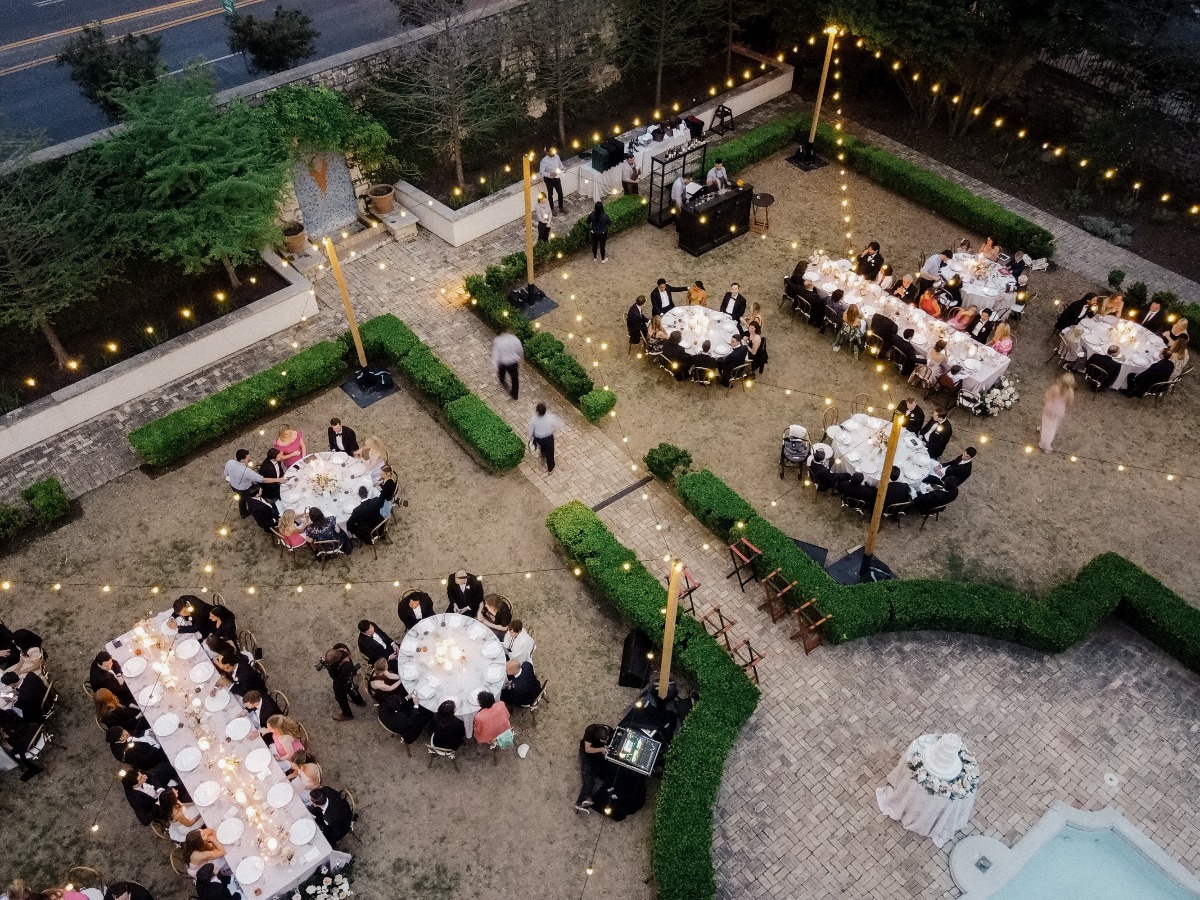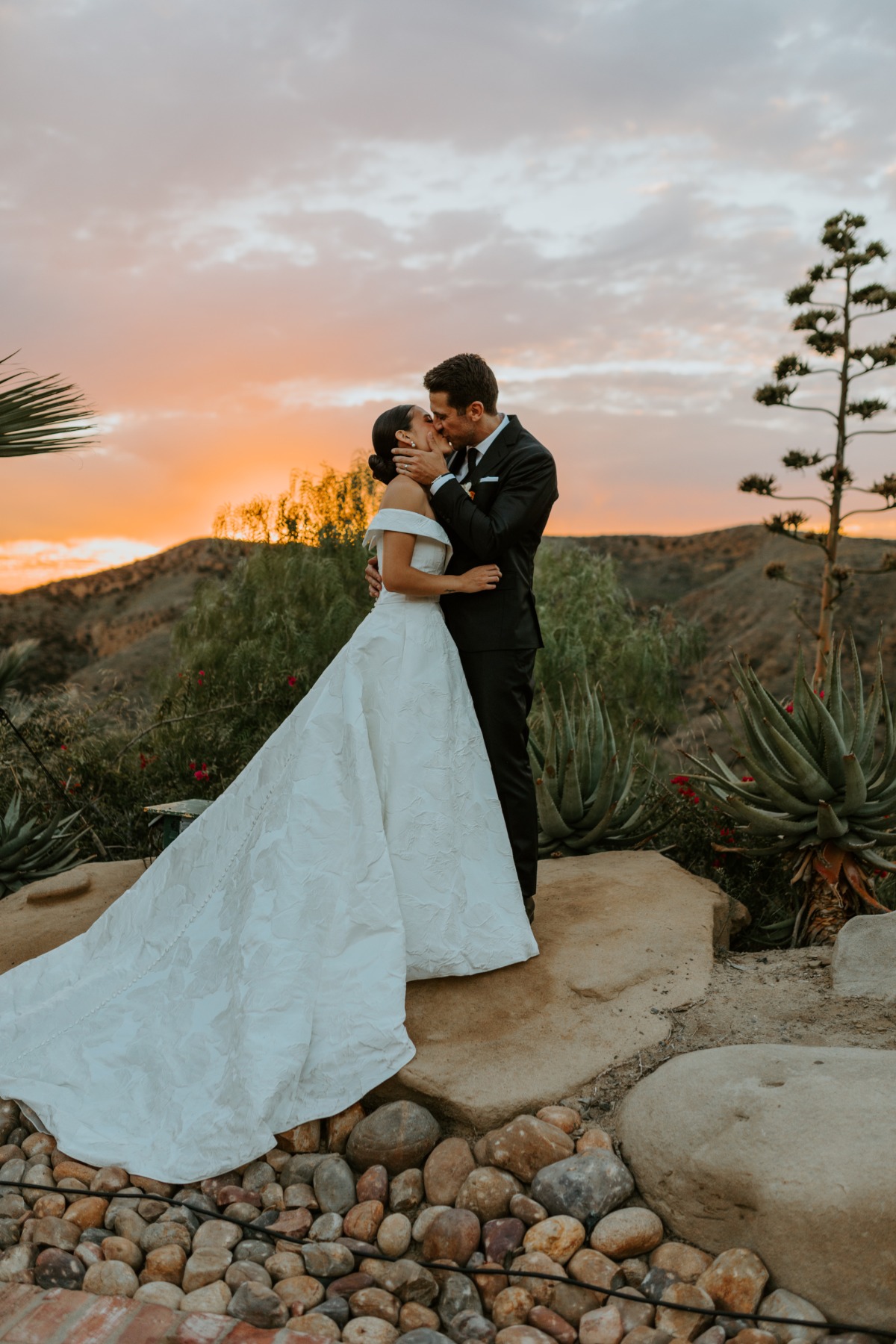 Photo: Nicole Henshaw Photography
Photo: Nicole Henshaw Photography
As you plan your special day, one of the most overlooked (but important!) decisions is choosing what time everything starts. The ceremony time impacts your schedule and sets the tone for the entire celebration.
Whether you’re dreaming of a breezy afternoon affair or a romantic evening under the stars, there’s no one-size-fits-all answer. Every option has its own perks and challenges, and the right choice comes down to what fits your vision. Let’s break down the pros and cons of different wedding start times so you can pick the one that feels right for you.
Pros Of An Earlier Start Time
More photo opportunities
Starting your day earlier gives your photographer more time and flexibility to capture every special moment. An early start can make all the difference if you’re planning a first look or want to venture offsite for couple photos.
Zhaun Frias, Owner & Lead Photographer at Zhaun Frias Photography, says, “Having an earlier start time also allows for more creative photography throughout the day as photography opportunities can be planned around optimal lighting, and there’ll be more candid and storytelling opportunities.”
Plus, early light tends to be softer and more flattering, which is great for outdoor shots. It’s a photographer’s dream and a win for your wedding album.
Not feeling rushed
Starting early will give your whole timeline some breathing room. Instead of racing from one event to the next, you can move through the day at a more relaxed pace.
“With an earlier start time, you’re able to break up the day and not feel so rushed moving in from the ceremony to the reception,” confirms Meaghan Cody, Owner of Sweet Pea Events. “Maybe take a break, add in extra time for photos, and have a few extra minutes for an outfit change/ new look!”
That extra buffer also gives you more control if anything runs behind—hair and makeup taking longer than planned, unexpected weather, or even traffic. Those little hiccups feel less stressful when you’re not crunched for time.
Extra time to dance
One of the most underrated perks of an early ceremony? More hours on the dance floor. With dinner and toasts wrapped up earlier, you and your guests will have plenty of time to cut loose and celebrate late into the evening.
Meagan Pinney, Owner of Your Jubilee, emphasizes, “Early ceremony start times mean you can start your dance party sooner! If you want to make sure you have a solid few hours of dancing, starting your ceremony earlier helps with this! You are able to get the dinner and toast done early enough to boogie on the dance floor!”
It also means your timeline can include fun extras like a surprise performance, a late-night snack, or even an after-party. The earlier you start, the more space you have to party through the night at your own pace.
Cons Of an earlier start time
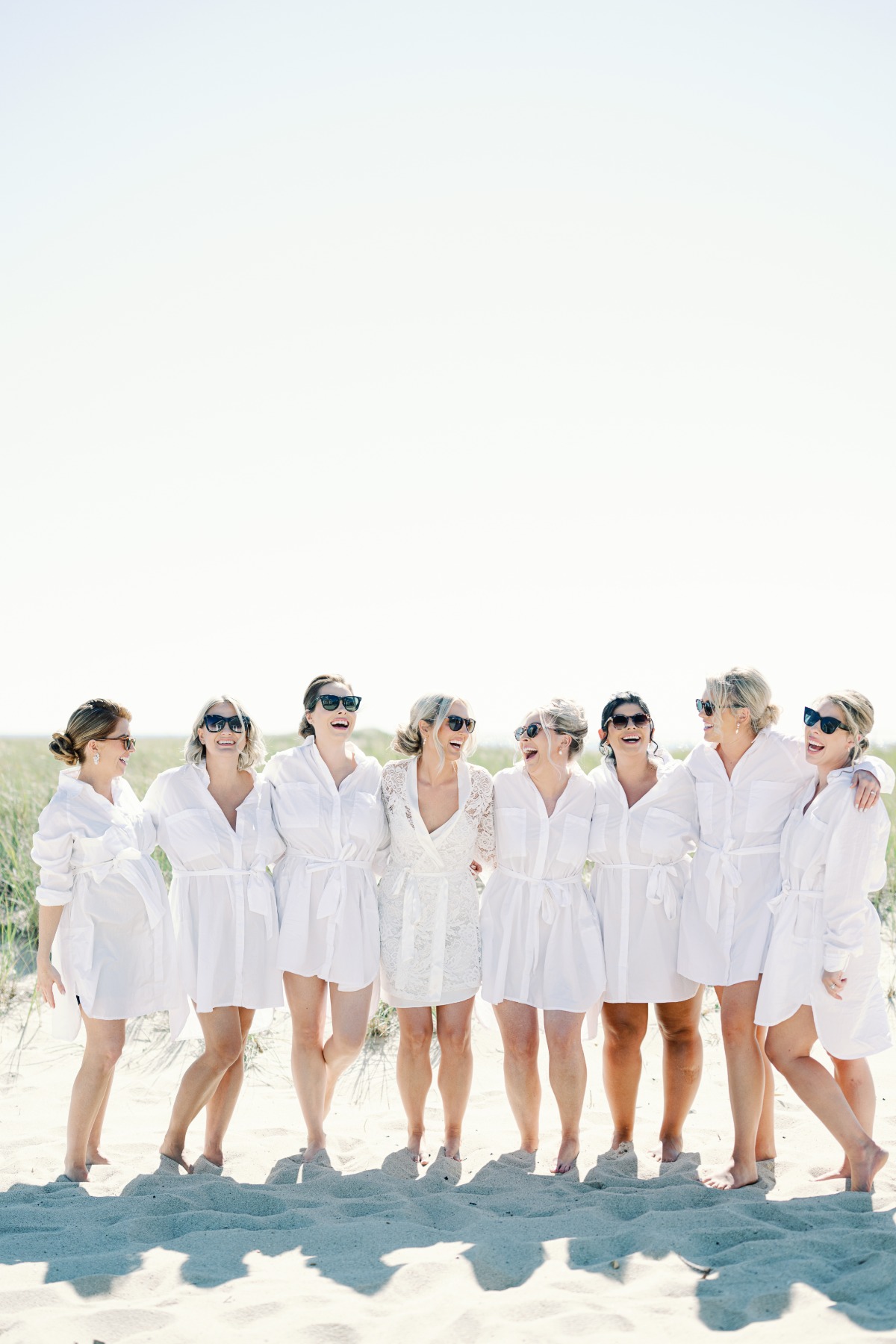 Photo: Colton Simmons Photography
Photo: Colton Simmons Photography
An early wakeup call
Let’s be real: earlier start times often mean setting an alarm at an hour that doesn’t feel very celebratory. This can lead to exhaustion before the party even starts.
“An earlier start time means earlier getting-ready time for hair and makeup as well,” reminds Alex McClard, Owner & Lead Planner at Vision in White Events.
If you’re not a morning person, this might be a dealbreaker. Even the most excited couples might feel a bit drained by dinner if the day starts too early!
Too much time to kill
Having an early ceremony with a later reception can sometimes create awkward gaps in your schedule. If guests don’t have a clear plan or activity to fill the time, it can lead to confusion and boredom.
McKenzi Taylor, CEO & Owner of Cactus Collective Weddings, shares, “Saying ‘I do’ at two in the afternoon might give you and your guests an excessive amount of time to try and kill following the ceremony before anyone is hungry for dinner. Finding the sweet spot for a ceremony, cocktail hour, and reception dinner might be a lot harder if your ceremony is not long after lunch.”
This can also create added pressure on you to entertain or provide snacks and drinks between events. And if your venue has a strict rental window, you may find yourself limited in how you can bridge that in-between time.
Logistical hiccups
The earlier the start, the more pressure there is on everything to run smoothly right out of the gate. Vendors, deliveries, and setup all have to happen in a tighter window, often during early hours when mistakes or delays are harder to recover from.
“Depending on how elaborate your wedding decor is and how much set up is required by the vendors, having an early ceremony time will cause for extra early load-in times, which could end up costing more money for labor and potentially additional venue rental hours,” adds Loni Peterson, MLS, Owner of LP Creative Events.
If someone’s running late or there’s a tech issue during setup, it can quickly throw off your timeline. The margin for error is smaller when you’re on a tight early schedule, especially if your venue has time constraints on when staff can begin access.
Pros Of A Later Start Time
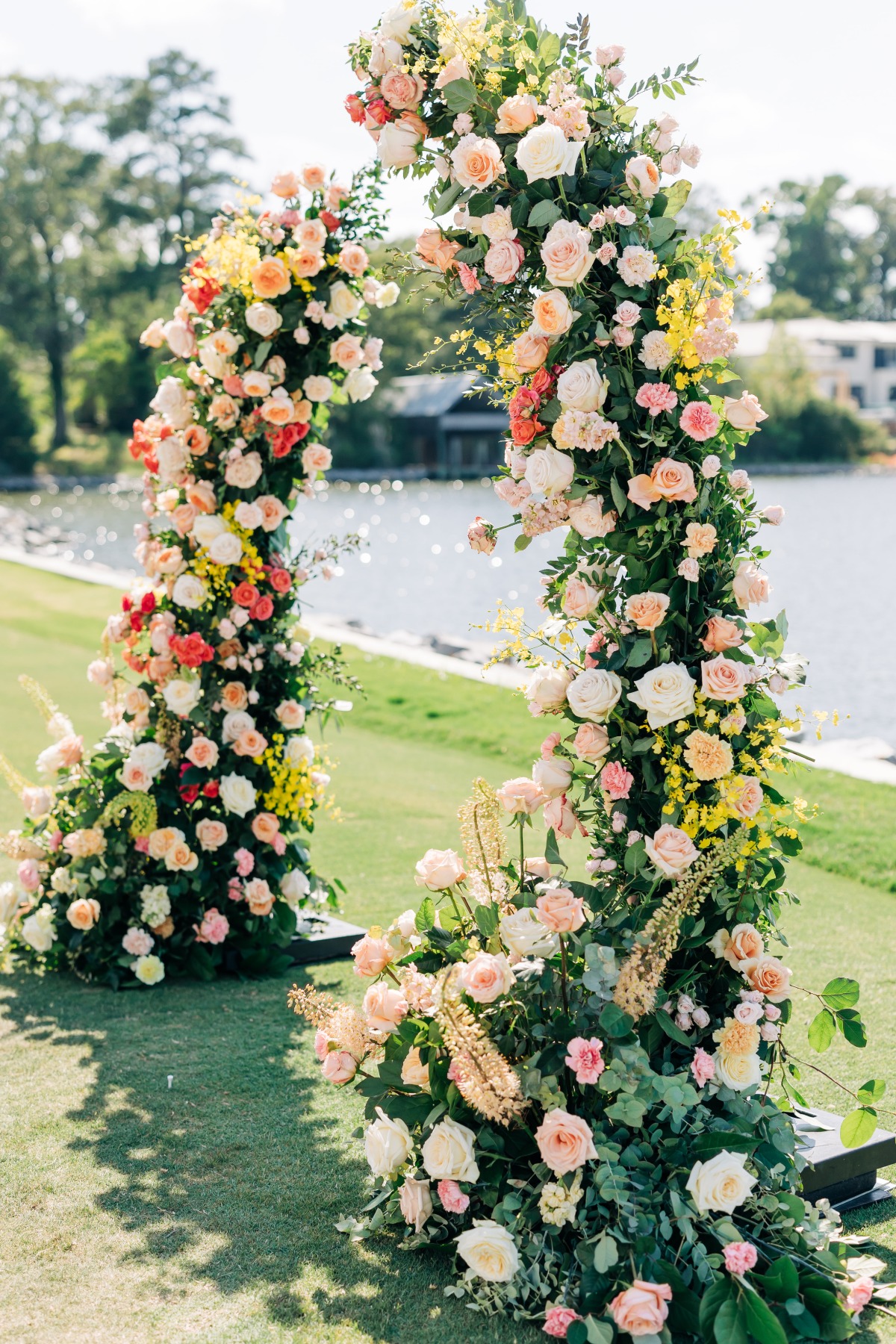 Photo: DeLine Photography
Photo: DeLine Photography
A relaxing start to the day
Later weddings often include the luxury of sleeping in, having a nice breakfast, and easing into hair and makeup. You don’t have to jump out of bed and dive straight into a full schedule, which can make the day feel a lot more enjoyable.
Erin Dabbs, Lead Photographer at Erin Ren Photography, notes, “Evening weddings allow everyone to have a relaxed morning. Instead of waking up early, many wedding parties can start getting ready after a relaxing morning and breakfast. A slow, peaceful morning sets the sweetest tone for your wedding day.”
For many couples, this extra time in the morning creates space to be present, soak in the moment, and spend time with loved ones before everything officially begins. Less rush = less stress.
Lighting advantages
Depending on the time of year and your venue, a later start might give you the perfect natural lighting for a romantic ceremony. Think golden hour vows, soft shadows, and that dreamy, cinematic glow that makes photos absolutely magical.
“Another advantage to an evening wedding is creativity with lighting,” explains Kimberley Dunkley Watkins, Chief Experiential Officer at Dragonfly Experiences. “You can do so much more with lighting and candles, the later your wedding starts, to create so many moods.”
Even better? You can use the changing light to your advantage throughout the event, from a sunset cocktail hour to twinkling string lights during dinner.
Setting the mood
Evening ceremonies have a naturally more formal and festive feel. The mood is more intimate, and the overall energy can feel more celebratory.
Carin Hunt, Wedding Specialist at Coconut Palm Inn, suggests, “If you’re hoping for a dance floor full of guests, an evening wedding is for you. Dimming the lights or dancing under the stars and turning up the beats increases the energy of the night and encourages your guests to let loose and really enjoy themselves.”
Plus, guests tend to be more in “party mode” by the evening. After a full day to prep and travel, they arrive ready to toast, dance, and celebrate with you well into the night.
Cons Of A Later Start Time
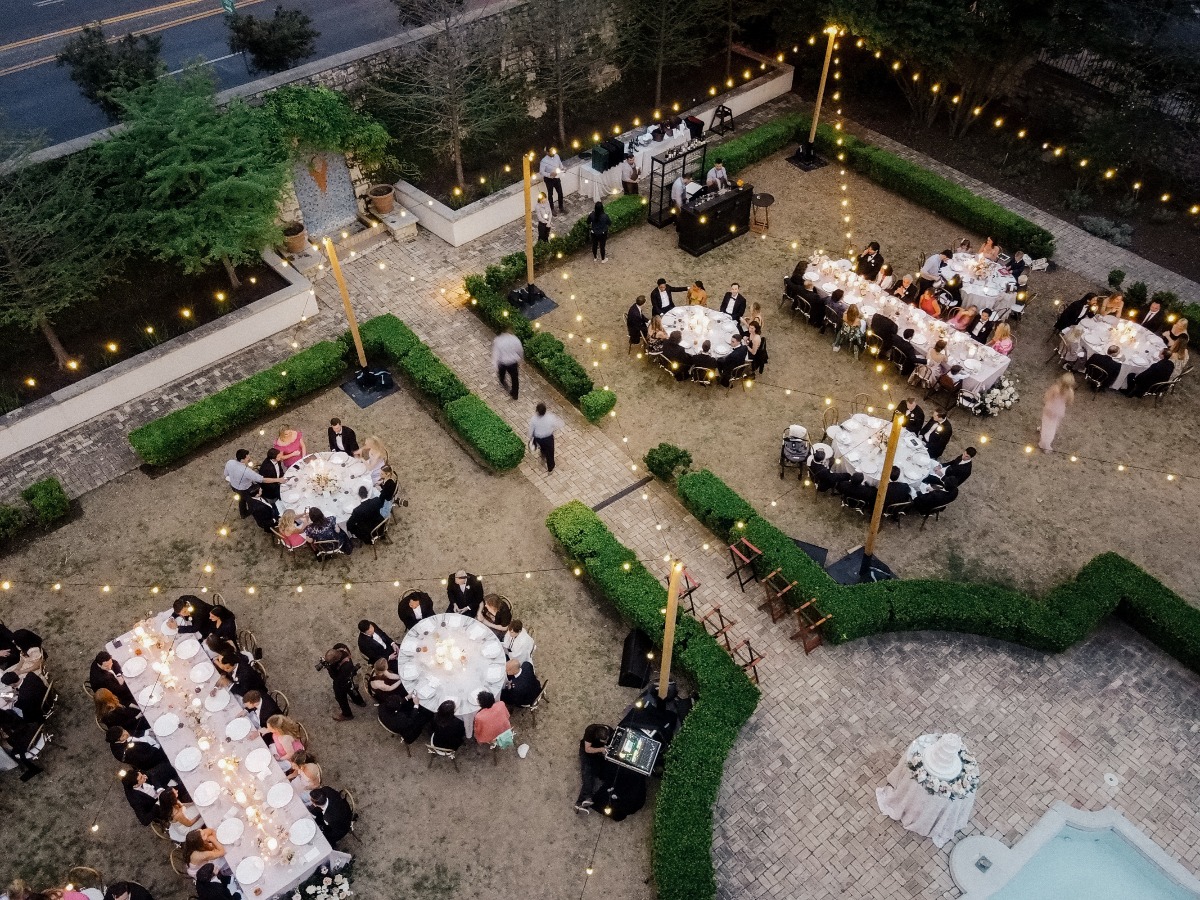
Guests leaving early
The downside of a later start? A handful of your loved ones might not make it to the last dance.
“For some guests, especially those with young kids or travel plans, a late night might mean they have to leave the party early,” highlights Pamela Tatz, Owner & Lead Photographer at Pamela Tatz Photography. “That’s definitely something to consider when thinking about having a later start time.”
This can feel a little anticlimactic if you were hoping for a packed dance floor all night long. If having everyone there for the full celebration is important to you, a late-night timeline could be a risk.
Hungry attendees
When your ceremony doesn’t start until late in the day, your guests might show up with growling stomachs, especially if they’ve been traveling or skipped a meal to get ready.
Emily Reno, Owner of Elopement Las Vegas, states, “Another downside is that dinner gets pushed later in the evening. Most guests aren’t used to eating at 8 or 9 p.m., so if you opt for a later ceremony, I always recommend having plenty of hearty hors d’oeuvres during cocktail hour to keep everyone happy.”
It’s also helpful to set expectations in advance. Including start times and a brief timeline on your wedding website can help guests plan accordingly, whether eating a light lunch or knowing when they’ll be fed.
Venue time limits
Sometimes, a later start can make your celebration feel shorter than you’d like. If you don’t start until 6 or 7 p.m. and have to wrap by 10 or 11, you might rush through the evening to make it all fit.
“Some venues have strict end times, which means at some point, you’ll be kicked out whether you want to or not,” reminds Craig Peterman, Owner of Craig Peterman Photography & Videography.
It’s worth confirming ahead of time how much flexibility your venue offers and whether you can extend the party elsewhere if needed. Starting late can be lovely, but make sure it doesn’t leave you watching the clock all night.
No matter what time you choose to start your wedding, the most important thing is that it feels right for you. Every option comes with its own set of perks and trade-offs, but with some thoughtful planning, you can create a timeline that flows smoothly and supports the celebration you’ve always imagined!
Meghan Ely is the founder of OFD Consulting, a public relations agency specializing in publicity, speaking engagements, and thought leadership for wedding and event professionals. She also leads the OFD Collective, a PR membership community for industry pros.
